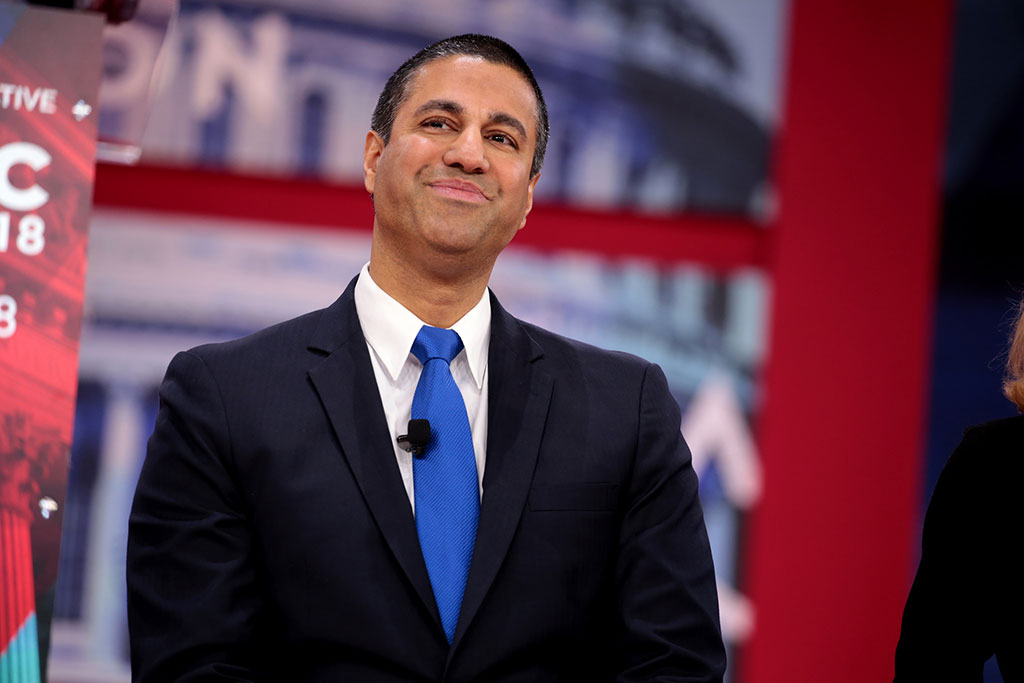Net neutrality died today as FCC’s vote to repeal rules goes into effect
FCC chairman Ajit Pai doubles down on stance that repealing net neutrality rules is the right move.

Today marks the first day of a post-net neutrality world, one in which rules introduced during the Obama administration under previous FCC chairman Tom Wheeler are officially repealed. In other words, net neutrality is dead, folks.
Current FCC chairman Ajit Pai spearheaded the effort to return the internet to the way it was before the rules took effect, and despite the overwhelming support for keeping the rules intact, the FCC voted 3-2 to reverse course. Starting today, ISPs and wireless carriers are no longer bound by the restrictions that were previously in place.
For anyone who hasn't been following, net neutrality is the concept of treating all internet traffic the same, no matter where it originates from. There were some exceptions (emergency services, mostly), but for the most part, the rules made it illegal for ISPs to slow down (throttle) internet traffic based on content, so long as the data was legal. The rules also restricted ISPs from charging extra for certain traffic, creating so-called fast lanes for companies and consumers.
In essence, the rules attempted to ensure a level playing field so that ISPs wouldn't favor their own services (in particular streaming video) over those by third parties by throttling and charging extra for certain traffic. There was also concern that without net neutrality rules in place, broadband providers could create tiered packages similar to cable TV. For example, an ISP could charge a base fee for basic internet, and $5 extra for a social media package that includes Facebook and Twitter, or a $10 entertainment package that bundles in streaming music as well.
This isn't something that ISPs did before net neutrality rules took effect, and proponents of the repeal argue that the open market will work itself out without the rules in place. Consumers would vote with their wallet/purse and avoid ISPs that behave badly, is the argument.
The flip side is there are many areas where broadband availability is limited to one or two options, giving consumers little or no choice in the matter. That doesn't tend to be the case in big cities, but is common in rural areas. So if an ISP does decide to nickel and dime its customers in those areas, a consumer would have to choose between sucking it up and paying the asking price, or going without broadband. Or pick up and move somewhere else. Those are lousy options, obviously.
Pai, who is a former attorney for Verizon, doubled down on his stance that repealing net neutrality rules was the right call. On Sunday, a day before the repeal finally became official, Pai published an editorial on CNET.
The biggest gaming news, reviews and hardware deals
Keep up to date with the most important stories and the best deals, as picked by the PC Gamer team.
"Our framework will protect consumers and promote better, faster internet access and more competition. Our approach includes strong consumer protections. For example, we empower the Federal Trade Commission to police internet service providers for anticompetitive acts and unfair or deceptive practices," Pai wrote. "In 2015, the FCC stripped the FTC—the nation's premier consumer protection agency— of its authority over internet service providers. This was a loss for consumers and a mistake we have reversed."
Pai also called the new course of action a "tremendous bipartisan success" and noted that the rules were "especially harmful for smaller internet service providers who didn't have the means to withstand a regulatory onslaught."
Despite his claim, millions of people flooded the FCC with comments supporting net neutrality during an open commenting period. Several internet and tech pioneers also signed a letter to the FCC urging it to reconsider the repeal, to no avail.
So here we are—the rules are dead and, over time, we'll see if the concerns were unfounded, as the current FCC believes, and if ISPs can be trusted not to screw over their customers.
Paul has been playing PC games and raking his knuckles on computer hardware since the Commodore 64. He does not have any tattoos, but thinks it would be cool to get one that reads LOAD"*",8,1. In his off time, he rides motorcycles and wrestles alligators (only one of those is true).


